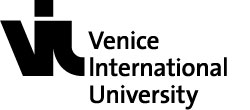S2320 Venice and Global Change: The Icon of Antimodern Dystopia? Marinetti, Thomas Mann, Proust, Andrea Segre
Professors
Schedule
Course description
Venice is the icon of a battleground between orientalism and modernity. It has always, and globally, incarnated the abysmal otherness of modernity – everything that the global, rationalist, masculinist modernity had to eradicate. On the other hand, Venice has in all its beautiful frailty ardent lovers: beside the whole female – or effeminate – world, Fortuny, Proust, Henry James, Thomas Mann and, most recently, Segre.
It was the futurist Marinetti, who in most violent terms advocated the destruction of Venice as the “cloaca massima del passatismo” and to go modern, global, go on, move and, if possible, fast towards a radiant, masculinist future of true Italians as “constructors of the future.” Marinetti construed Venice as the emblem of romantic backwardness, an oriental arabesque, a decadent place of venal corruption. Curvy Venice is a woman, and this cannot, for Marinetti, be the future of mankind – not, as in the chanson, woman is the future of man, but total disaster. Worse, Venice is a procuress, and the city “the greatest brothel of history.” The cheap and shameless, as it were, business of the Venetians is to excite the whole world to love making. To prepare the sex of the great of this world in their oriental palaces and to profit maximally from it, is the only one ridiculous occupation of Venetians. It is a sick, feverish place, a city poisoned by luxuriant phantasies. Venice ‘au claire de lune’ is a global icon of everything that resists modernity. Marinetti and the like hope for radiant electricity.
It is this resistance to modernity and to the utopian promises of globalization and scientific rationalization that attracted many people from off the main stream. Now everybody, including George Clooney, wants to get married in Venice. In Venice, the truth of the human is unveiled beyond the utopian, all empowering fantasies: the arabesque as the refusal of the straight line of progress (Fortuny), sickness and deviant sexuality (Proust, Mann), decadence and the inability to live up to one’s death, the loss of everything. In Andrea Segre’s movie Molecole, Venice is shown under the threat of aqua alta in November 2019 and in times of the pandemic in February 2020. It appears in its frailty and more beautiful than ever as metaphor of loss, of the unsayable, of death in life, of emptiness, of vanishing in the experience of the Shoah – in short, as the counter-topos against the utopia of the radiant global city armed for success.
Works discussed
Filippo Tommaso Marinetti, “Against Past-loving Venice” (1910); Marcel Proust, The Captive; The Fugitive (1913-27, extracts); Thomas Mann, Death in Venice (1912); John Ruskin, Stones of Venice (extracts); Luchino Visconti, Death in Venice, Andrea Segre, Molecules (2021)
Learning Outcomes
The course outlines the representation and metaphorical value of Venice in 19th- and 20th-century literature (French, Italian, German and English) as well as contemporary cultural production, with special focus on the turn of the 20th century, and gives an account of the city’s structural place in globalized material and symbolic economies as well as in European and global history from the 19th century until today. Simultaneously, it provides students with an introduction to broader currents of the intellectual history of Western Europe (modernity with its characteristic notions of gender and the (post-)colonial other), integrating methodology and outcomes from gender and post-colonial studies.
Syllabus
Monday, the 27th of February
Introduction
Monday, the 6th of March
Filippo Tommaso Marinetti, “Let’s murder the moon shine” (Uccidiamo il chiaro di luna!)
Monday, the 13th of March
Marinetti, “Let’s murder the moon shine” (Uccidiamo il chiaro di luna!)
Monday, the 20th of March
Thomas Mann, Death in Venice
Monday, the 27th of March
Thomas Mann, Death in Venice
Monday, the 3rd of April
Luchino Visconti, Death in Venice (Morte a Venezia)
Monday, the 17th of April
Marcel Proust, The Fugitive; extraits (Albertine disparue)
Monday, the 24th of April
Marcel Proust, The Captive; extraits (La Prisonnière)
Monday, the 8th of May
John Ruskin, Stones of Venice, I:1 (The Quary)
Monday, the 15th of May
Andrea Segre, Molecole
Monday, the 22nd of May
Andrea Segre, Molecole
Monday, the 29th of May
Final discussion
Teaching and Evaluation Methods
All grades are based on a presentation in class (20 min.); presentation should open the text for discussion, a pointed thesis is therefore essential, plus a paper (10 to 12 pages developed from the presentation) and, of course, oral participation during classes: presentation 30%, paper 50%, oral 20%.
Last updated: March 20, 2023




















